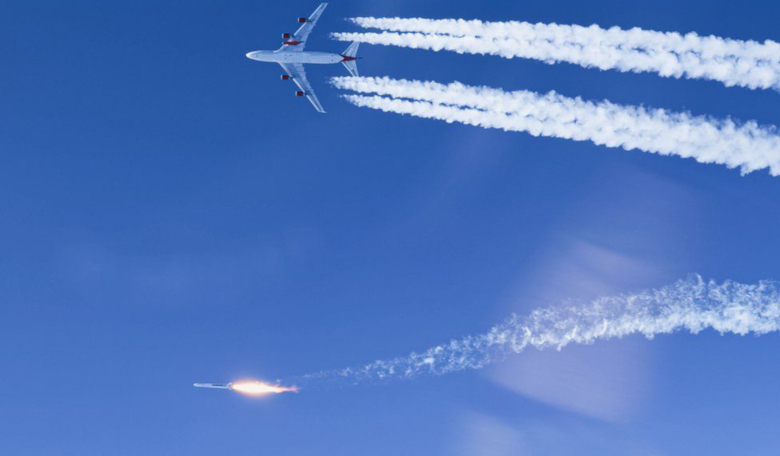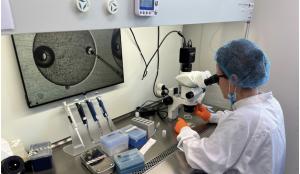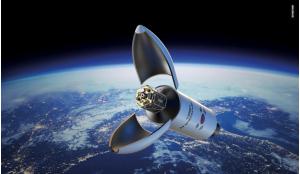Virgin Orbit, the California-based satellite launch company, confirmed that its LauncherOne rocket reached space during the company’s second launch demonstration yesterday, successfully deploying 10 payloads for NASA’s Launch Services Program (LSP).
Virgin Orbit’s novel launch system uses a technique called air launch, in which a rocket is launched from under the wing of a jet aircraft, rather than from a traditional launch pad on the ground. In addition to improving the payload capacity of the rocket, this technique allows the LauncherOne system to be the world’s most flexible and responsive launch service — flying on short notice and from a wide variety of locations to access any orbit.
For today’s picture-perfect mission, Virgin Orbit’s carrier aircraft, a customized 747-400 dubbed Cosmic Girl, took off from Mojave Air and Space Port at approximately 10:50 am and flew out to a launch site over the Pacific Ocean, about 80 kilometres (50 miles) south of the Channel Islands. After a smooth release from the aircraft, the two-stage rocket ignited and powered itself to orbit. At the conclusion of the flight, the LauncherOne rocket deployed 10 CubeSats into the team’s precise target orbit, marking a major step forward for Virgin Orbit in its quest to bust down the barriers preventing affordable and responsive access to space.
The payloads onboard LauncherOne today were selected by NASA LSP as part of the agency’s CubeSat Launch Initiative (CSLI). Nearly all of the CubeSat missions were designed, built and tested by universities across the US, including Brigham Young University (PICS), the University of Michigan (MiTEE), and the University of Louisiana at Lafayette (CAPE-3).
This flight also marks a historical first: no other orbital class, air-launched, liquid-fuelled rocket had successfully reached space before yesterday.
“A new gateway to space has just sprung open! That LauncherOne was able to successfully reach orbit today is a testament to this team’s talent, precision, drive, and ingenuity. Even in the face of a global pandemic, we’ve maintained a laser focus on fully demonstrating every element of this revolutionary launch system. That effort paid off today with a beautifully executed mission, and we couldn’t be happier,” said Virgin Orbit CEO Dan Hart.
“Virgin Orbit has achieved something many thought impossible. It was so inspiring to see our specially adapted Virgin Atlantic 747, Cosmic Girl, send the LauncherOne rocket soaring into orbit. This magnificent flight is the culmination of many years of hard work and will also unleash a whole new generation of innovators on the path to orbit. I can’t wait to see the incredible missions Dan and the team will launch to change the world for good,” said Virgin Group founder Sir Richard Branson.
With this successful demonstration in the books, Virgin Orbit will officially transition into commercial service for its next mission. Virgin Orbit has subsequent launches booked by customers ranging from the US Space Force and the UK’s Royal Air Force to commercial customers like Swarm Technologies, Italy’s SITAEL, and Denmark’s GomSpace.
The company’s next few rockets are already well into integration at its Long Beach manufacturing facility.











